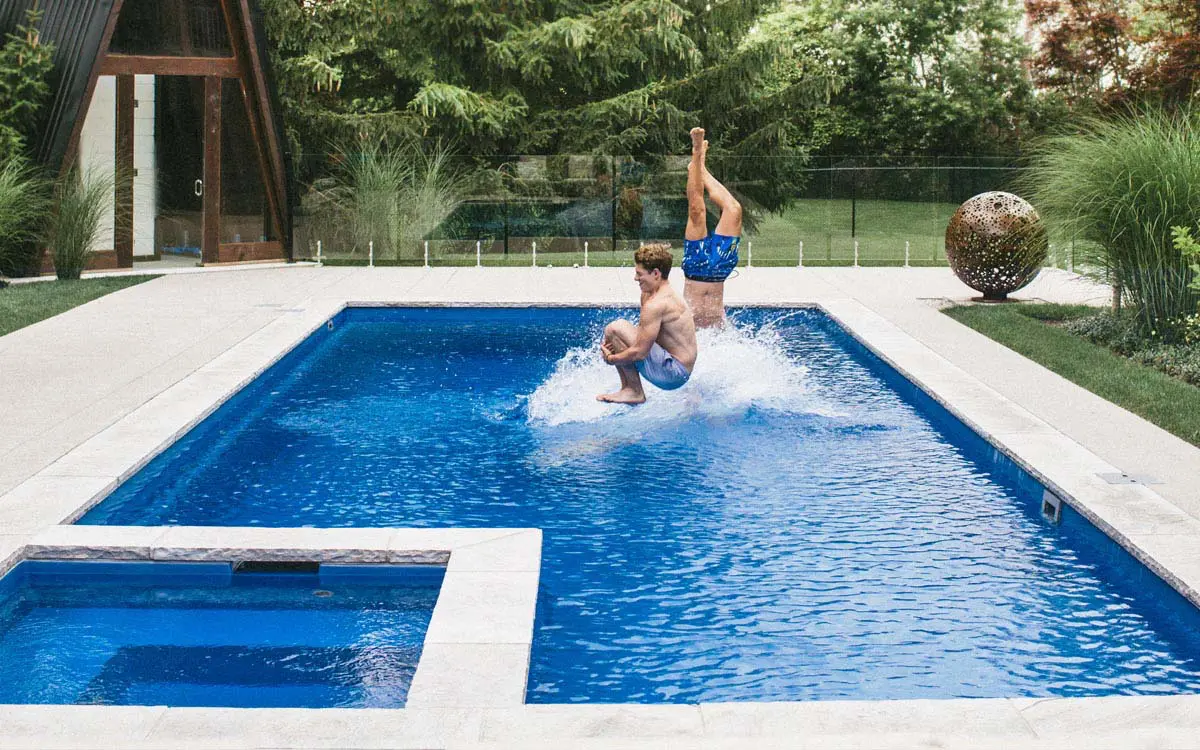
Salt Water Chlorinator: The Ideal Solution for Fiberglass Pools
Introduction
Have you ever dreamed of a crystal-clear, low-maintenance pool that feels as gentle as a spa? If so, you’re not alone. Many homeowners want a backyard oasis with pristine water that’s easy to maintain. However, some hesitate at the idea of a saltwater pool, assuming it will be harsh and corrosive—like swimming in the ocean.
The truth is, a salt water chlorinator creates a much gentler swimming experience. Instead of harsh chemicals, it continuously generates chlorine at a controlled level, keeping your pool clean without the strong smell or irritation of traditional chlorine treatments.
Think of a salt water chlorinator as your pool’s personal spa treatment system—working behind the scenes to maintain clear, soft water with minimal effort. In this guide, we’ll explore why a salt water chlorinator is the perfect match for fiberglass pools, creating a luxurious, low-maintenance swimming experience.
What is a Salt Water Chlorinator?
Definition & Functionality
A salt water chlorinator, also known as a salt chlorine generator, is a system that converts dissolved salt into chlorine to keep pool water sanitized. Unlike traditional chlorine pools that require frequent chemical additions, a pool salt chlorinator continuously produces chlorine, ensuring a balanced and consistent water quality.
How It Works
- Adding Salt – A small amount of salt is added to the pool water.
- Electrolysis Process – The salt chlorine generator uses electrolysis to break down the salt, generating chlorine.
- Continuous Sanitation – The chlorine keeps the water clean and safe, eliminating bacteria and algae.
This process provides a self-sustaining, efficient way to maintain pool water without the need for constant chemical adjustments.
Benefits of Salt Water Chlorinators
Healthier, Softer Water
Saltwater pools feel smoother and silkier on the skin compared to traditional chlorine pools. The water is less irritating to the eyes and doesn’t cause the dryness often associated with chemical chlorine.
Reduced Chemical Handling
With a salt water pool chlorinator, there’s no need to store, measure, or manually add large amounts of chlorine. This makes pool care safer and more convenient.
Cost Efficiency
While the initial investment in a salt chlorine generator is higher, long-term savings come from reduced chemical purchases and lower maintenance costs.
Consistent Water Quality
Since the system continuously produces chlorine, the water remains balanced, preventing bacteria and algae growth. This means fewer chemical fluctuations and less frequent testing.
Why Fiberglass Pools Are Ideal for Salt Water Systems
Durability & Resistance
Fiberglass pools are non-porous, making them more resistant to salt exposure than concrete or vinyl pools. Unlike concrete, fiberglass doesn’t require resurfacing, and it won’t degrade from prolonged salt contact.
Minimal Maintenance
The smooth surface of fiberglass pools naturally resists algae buildup, reducing the need for scrubbing and additional chemicals. Less maintenance means more time enjoying your pool instead of cleaning it.
Energy Efficiency
Fiberglass pools retain heat better than concrete pools, reducing heating costs. Combined with a salt water chlorinator, this makes for an energy-efficient, cost-effective pool system.
Comparison with Concrete Pools
Higher Maintenance Needs
Concrete pools are porous, meaning they absorb water and provide a breeding ground for algae. This requires frequent chemical treatments and cleaning.
Surface Erosion
Saltwater can degrade concrete surfaces over time, leading to costly resurfacing and repairs.
More Frequent Repairs
Concrete pools are prone to cracks and wear, which can be worsened by salt exposure. This results in ongoing maintenance costs.
Comparison with Vinyl Pools
Metal Component Concerns
Many vinyl pools have metal wall panels that can corrode when exposed to saltwater, leading to structural issues.
Liner Replacement
Vinyl liners are more vulnerable to damage from salt exposure and require more frequent replacements, adding to long-term costs.
Higher Long-Term Costs
While vinyl pools have a lower initial cost, the need for liner replacements and additional maintenance can make them more expensive over time.
Long-Term Cost Savings
Lower Chemical Costs
A salt water pool chlorinator reduces the need for chlorine tablets or liquid chlorine, leading to significant savings on chemicals.
Fewer Repairs
Fiberglass pools don’t suffer from the same erosion or liner issues as concrete and vinyl pools, reducing long-term repair expenses.
Energy Efficiency
Fiberglass pools’ natural heat retention, combined with a salt chlorine generator, minimizes heating and cleaning costs.
Impact on Pool Water Quality
Crystal-Clear Water
The continuous chlorination process maintains clear, sparkling water without the cloudiness that can occur in traditional chlorine pools.
Gentle on Skin & Eyes
Say goodbye to red eyes and dry skin—saltwater pools offer a much gentler swimming experience.
Balanced Water Chemistry
With a salt chlorine generator, chlorine levels remain stable, reducing the risk of chemical imbalances that can make swimming uncomfortable.
Environmental Benefits
Reduced Chemical Usage
Using a salt water chlorinator means less reliance on manufactured chlorine, reducing the environmental impact of chemical production and disposal.
Lower Water Waste
Since the water chemistry is more stable, there’s less need to drain and refill the pool, conserving water.
Eco-Friendly Pool Ownership
A salt chlorine generator provides a more sustainable way to maintain a pool, making it an environmentally responsible choice.
Ease of Maintenance
Fewer Algae Issues
The non-porous surface of fiberglass pools makes it difficult for algae to grow, reducing the need for excessive scrubbing and chemical treatments.
Less Frequent Chemical Adjustments
A pool salt chlorinator automates chlorine production, keeping levels consistent with minimal effort.
Lower Cleaning Requirements
Spend less time maintaining your pool and more time enjoying it.
Salt Concentration Misconceptions
Not as Salty as the Ocean
A saltwater pool contains only about 3,000 ppm of salt, compared to 35,000 ppm in seawater. This means the water is much milder and won’t feel like ocean water.
No Salty Taste
The salt concentration is similar to natural tears, making it virtually unnoticeable when swimming.
Safe for Pool Equipment
Modern salt chlorine generators are designed to prevent excessive wear on pumps and filters, ensuring the longevity of your pool system.
Conclusion
The Best Combination: Fiberglass + Saltwater
Pairing a salt water chlorinator with a fiberglass pool creates the ultimate balance of luxury, efficiency, and low maintenance.
Long-Term Benefits
- Softer, healthier water
- Fewer chemicals and maintenance requirements
- Lower long-term costs for pool ownership
Make the Switch Today
If you’re considering a fiberglass pool with a saltwater system, now is the perfect time to invest. Experience the ease of maintenance, cost savings, and luxurious swimming experience that this combination provides. Ready to transform your backyard? Contact us today to explore the best pool options for you.






